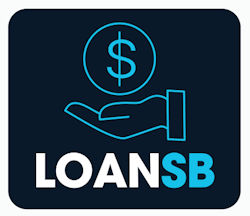Quick Guide: Understanding Business Loan Requirements

Hey there! So you’re thinking about getting a business loan? Awesome! Let’s dive into what lenders usually look for when deciding whether to approve your loan application. We’ll keep it simple and straightforward.
LoanSB: Quick Article Summary
| Requirement | Description |
|---|---|
| Credit Score | Lenders check both personal and business credit scores to assess reliability and risk. |
| Business Plan | A solid plan including executive summary, market analysis, financial projections, and loan use. |
| Financial Statements | Includes income statement, balance sheet, and cash flow statement to show financial health. |
| Collateral | Assets pledged to secure the loan, reducing lender’s risk. |
| Business’s Financial Health | Indicators like debt-to-income ratio, profit margins, and revenue trends. |
| Personal and Business Credit History | History of managing and repaying debts. |
| Repayment Plan | Clear plan showing revenue projections, expense management, and a contingency plan. |
| Industry Experience | Experience in the industry reassures lenders of your ability to manage and grow the business. |
| Loan Purpose | Detailed explanation of how the loan funds will be used for business growth. |
| Lender Relationships | Strong relationships can lead to better terms and future financing opportunities. |
| Legal Documentation | Includes licenses, permits, articles of incorporation, tax returns, and contracts. |
| Personal Guarantees | Personal liability for loan repayment if the business defaults. |
| Miscellaneous Requirements | May include business insurance, background checks, and bank statements. |
1. Credit Score
First things first, your credit score is super important. Lenders want to know that you’re reliable and can pay back the loan. Generally, a higher credit score means a better chance of getting approved and securing a lower interest rate. If your credit score isn’t great, don’t worry! There are ways to improve it, like paying off debts and keeping your credit utilization low.
2. Business Plan
Yep, you guessed it—a solid business plan is a must. Lenders want to see that you have a clear vision for your business and a plan for how you’ll use the loan to grow or sustain it. Your business plan should include:
- Executive Summary: A brief overview of your business and what you do.
- Market Analysis: Show that you understand your industry and target market.
- Financial Projections: How much money you expect to make and spend in the next few years.
- Use of Loan: A detailed explanation of how you’ll use the loan funds.
Having a well-thought-out business plan shows lenders that you’re serious and have done your homework.
3. Financial Statements
Lenders will ask for your financial statements to get a clear picture of your business’s financial health. Here’s what you’ll need:
- Income Statement: This shows your revenue, expenses, and profit over a specific period. It helps lenders see how much money your business is making and where it’s going.
- Balance Sheet: This provides a snapshot of your business’s assets, liabilities, and equity. Lenders use this to understand your business’s overall financial stability.
- Cash Flow Statement: This details the flow of cash in and out of your business. It’s crucial for showing lenders that you have enough cash on hand to cover loan payments.
4. Collateral
Collateral is something of value that you pledge to secure the loan. It can be equipment, inventory, real estate, or other assets. If you can’t repay the loan, the lender can seize the collateral to recover their money. Not all loans require collateral (like unsecured loans), but having it can improve your chances of getting approved and might even get you better terms.
5. Business’s Financial Health
Lenders will also look at your business’s overall financial health. They want to ensure that your business is profitable or at least on a solid path to profitability. Here are a few things they might consider:
- Debt-to-Income Ratio: This ratio compares your business’s total debt to its total income. A lower ratio is better, as it shows you’re not overly burdened by debt.
- Profit Margins: Higher profit margins indicate that your business is efficiently turning revenue into profit.
- Revenue Trends: Lenders will look at your revenue over time to see if it’s growing, stable, or declining.
6. Personal and Business Credit History
Lenders will take a close look at both your personal and business credit histories. Here’s what they’re checking for:
- Personal Credit History: Even though the loan is for your business, your personal credit score matters, especially if your business is small or new. A good personal credit score shows lenders that you’re responsible with money.
- Business Credit History: If your business has been around for a while, lenders will look at its credit history too. This includes any previous loans, lines of credit, and payment history with suppliers. A strong business credit history can significantly boost your chances of loan approval.
7. Repayment Plan
Having a clear and realistic repayment plan is crucial. Lenders want to see that you’ve thought through how you’ll pay back the loan. Here are some key points to consider:
- Revenue Projections: Show lenders your expected revenue and how you plan to achieve it. This helps them see that you’ll have enough income to cover loan payments.
- Expense Management: Outline your business expenses and demonstrate how you’ll manage them while repaying the loan.
- Contingency Plan: Things don’t always go as planned, so having a backup plan is essential. Explain how you’ll handle unexpected expenses or revenue shortfalls.
8. Debt Repayment History
Lenders will look at your history of repaying debts. They’ll check for any late payments, defaults, or bankruptcies. A clean repayment history indicates that you’re a low-risk borrower. If you have any blemishes on your record, be prepared to explain them and show how you’ve learned from past mistakes.
Industry Experience, Loan Purpose, and Lender Relationships
Welcome back! In this part, we’ll discuss how your industry experience, the purpose of the loan, and your relationship with lenders can impact your loan application.
9. Industry Experience
Lenders prefer to lend to businesses run by individuals with experience in their industry. Your background and expertise can reassure lenders that you understand the industry’s challenges and opportunities. Here’s why it matters:
- Track Record: If you have a proven track record in your industry, lenders are more likely to trust that you can successfully manage and grow your business.
- Risk Management: Experienced business owners are better equipped to handle industry-specific risks, making them safer bets for lenders.
10. Clear Purpose for the Loan
Lenders want to know exactly how you plan to use the loan funds. Having a clear and detailed purpose for the loan can strengthen your application. Common purposes include:
- Expanding Operations: Opening new locations, increasing production capacity, or entering new markets.
- Purchasing Equipment: Buying new machinery, technology, or vehicles to improve efficiency and productivity.
- Working Capital: Managing day-to-day expenses, covering payroll, or handling seasonal fluctuations.
- Marketing and Advertising: Launching new marketing campaigns to attract more customers and increase sales.
Be specific about how the loan will benefit your business and contribute to its growth.
11. Relationship with Lenders
Having a good relationship with your lender can make a big difference. Here’s why building and maintaining strong relationships with lenders is important:
- Trust and Rapport: A positive relationship with your lender can lead to better terms and conditions. Lenders are more likely to approve your loan if they trust you and your business.
- Understanding Your Needs: Lenders who know your business well can offer tailored solutions that best fit your needs.
- Future Financing: Establishing a good relationship with your lender can make it easier to secure additional funding in the future.
12. Legal Documentation
When applying for a business loan, you’ll need to provide various legal documents to prove your business’s legitimacy and operational status. Common documents include:
- Business Licenses and Permits: Proof that your business is legally allowed to operate in your industry and location.
- Articles of Incorporation: Documents that establish your business as a legal entity.
- Tax Returns: Both personal and business tax returns for the past few years to verify income and financial stability.
- Contracts and Agreements: Any significant contracts, such as lease agreements or major client contracts, to show your business’s commitments and revenue sources.
13. Personal Guarantees
Lenders often require personal guarantees, especially for small businesses or startups. A personal guarantee means that you, as the business owner, agree to be personally responsible for repaying the loan if the business cannot. This reduces the lender’s risk but increases your personal liability. Here’s what you should know:
- Risk to Personal Assets: If your business defaults on the loan, the lender can come after your personal assets (like your home or savings) to recover the debt.
- Strengthens Application: Providing a personal guarantee can make your loan application more appealing to lenders, as it shows your commitment to repaying the loan.
14. Miscellaneous Requirements
Depending on the lender and the type of loan, there may be additional requirements. Some common ones include:
- Business Insurance: Lenders might require you to have certain types of insurance (like general liability or property insurance) to protect against potential losses.
- Background Checks: Some lenders conduct background checks on business owners to look for any red flags, such as a criminal history or past bankruptcies.
- Bank Statements: Providing recent bank statements can help lenders verify your business’s cash flow and financial health.
Wrapping Up
And that’s it! Understanding these business loan requirements can help you prepare a strong application and increase your chances of getting approved. Good luck, and may your business thrive with the financial support it needs!

Please contact us if you have any feedback or questions.


